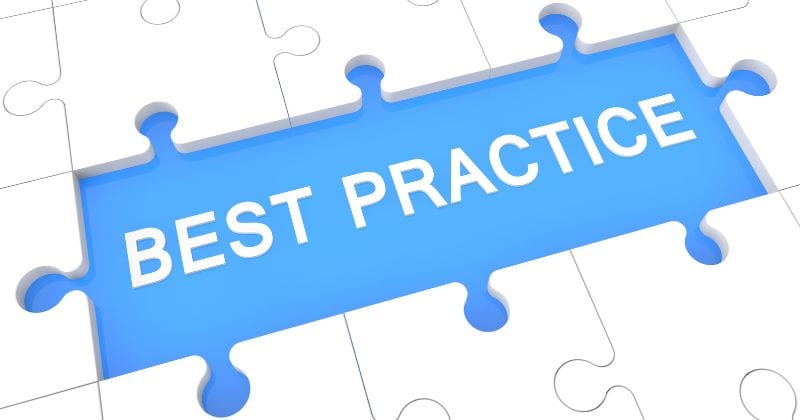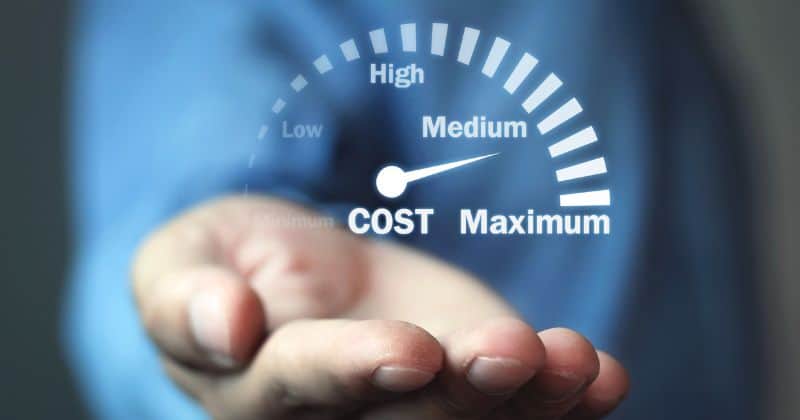Ever wanted to amplify your voice, engage a passionate community, and even turn it into a side hustle? Look no further than the dynamic world of blogs! These online platforms are more than just personal diaries; they’re powerful tools for self-expression, connection, and even financial gain.
The technical side of blogs, like CMS and SEO, can feel daunting. But fear not! As an experienced blogger, I’m here to help. I’ve conquered these challenges and created practical solutions to empower you. We’ll simplify the complex, providing actionable insights and paving the way for exciting opportunities.
I’ll help you be a confident blogger equipped with the knowledge and skills to turn your online platform into a thriving community. You’ll not only understand the nuts and bolts of blogging, but you’ll also be able to craft a compelling strategy tailored to your unique voice and goals. Let’s get it!
How Blogging Works
Successful blogging requires consistent time and effort. It cannot be done in just a few minutes a day. Bloggers must dedicate research, planning, and writing hours to create valuable content. This ensures that their posts are informative, engaging, and well-crafted.
Engaging with readers through comments and social media is crucial for building an audience. Responding to comments shows that you value your readers’ input and encourage them to continue interacting with your blog. Sharing your posts on social media platforms helps increase visibility and attract new readers.
Consistent Blogging
Regular updates play a significant role in maintaining reader interest and improving search engine rankings. By following an editorial calendar or schedule, bloggers can ensure they publish new content regularly. This keeps readers engaged and signals to search engines that the blog is active and relevant.
Blogging is about sharing personal experiences, insights, and knowledge with others. By incorporating personal stories into their posts, bloggers can connect with their audience on a deeper level. Sharing relatable anecdotes helps build trust and allows readers to see the value in the provided content.
Importance of Blogging

Blogging plays a critical role in digital marketing, offering numerous benefits for individuals and businesses looking to establish their online presence. Here are some key reasons why blogging is essential:
- Valuable Information: Blogs provide internet users with a wealth of valuable information on various topics. From DIY tutorials to expert advice, blogs cater to diverse interests and needs, ensuring readers can access a wide range of informative content.
- Diversity of Content: By contributing to the vast array of online content, blogs add depth and diversity to the digital realm. They offer unique perspectives, personal experiences, and niche expertise that can’t be found elsewhere, enriching the overall online experience for users.
- Credibility Building: Blogging allows individuals and businesses to establish credibility within their respective niches. By consistently sharing insightful content and showcasing expertise in a particular field, bloggers can gain the trust of their audience. This credibility can lead to increased brand recognition and opportunities for collaboration or partnerships.
- SEO Benefits: Search engines prioritize fresh and relevant content when ranking websites. Regularly updating a blog with new posts helps improve search engine optimization (SEO) efforts by providing search engines with more indexed pages. This can ultimately lead to higher visibility in search results and increased organic traffic.
Is Starting a Blog Worth It?
Starting a blog has its pros and cons, so it’s important to consider whether it is worth the effort. Let’s take a look at both sides of the equation.
Pros
- Express yourself: Blogging allows you to express your thoughts, ideas, and creativity on a public platform.
- Build an online presence: By consistently publishing content on your blog, you can establish yourself as an authority in your niche and build an online presence.
- Share knowledge: Blogs are a great way to share valuable information with others with similar interests or questions.
- Income potential: Through various monetization strategies such as advertising, sponsored posts, or selling products/services, blogging can generate income.
Cons
- Time commitment: Building and maintaining a successful blog requires time and dedication. Regularly creating high-quality content takes effort.
- Gaining traction takes time: It may take some time before your blog gains traction and attracts a significant audience.
- Competition in saturated markets: The blogging world is highly competitive, especially in popular niches. Standing out among thousands of other blogs can be challenging.
Considering these pros and cons will help you determine if starting a blog is worthwhile.
While blogging offers opportunities for self-expression, building an online presence, sharing knowledge, and potentially earning income, it also demands time commitment and perseverance to overcome challenges like gaining traction in a saturated market.
Ultimately, the decision lies with you based on your goals and willingness to invest the necessary effort into making your blog successful.
Rise in Blogging Popularity: Reasons and Trends

The rise in blogging popularity can be attributed to several key factors. Firstly, the increased accessibility of internet connection globally has opened up opportunities for many people to start their own blogs. With more individuals gaining access to the internet, the potential audience base for bloggers has expanded significantly.
Social Media: More than a Trend
Social media platforms have also played a crucial role in the surge of blogging. These platforms have made it easier for bloggers to promote their content and reach wider audiences.
By leveraging social media channels, bloggers can attract a loyal readership and drive website traffic.
Influencers
Influencer marketing has contributed to the growth of blogging as brands recognize the power of collaborating with influential bloggers.
Many companies now partner with bloggers for promotional purposes, harnessing their reach and influence to connect with niche customers.
Authenticity
Another reason behind the popularity of blogging is the demand for authentic voices and personal stories. Readers are drawn to genuine experiences and relatable narratives in a world saturated with information.
Bloggers who share their unique perspectives and personal journeys often resonate with audiences seeking an emotional connection.
Overall, there are numerous benefits associated with the rising popularity of blogging. Bloggers have found various ways to capitalize on their online presence, from expanding their network and establishing expertise within a particular niche to monetizing through sponsored content or advertising revenue.
To summarize:
- Increased accessibility of internet connection globally has led more people to start blogs.
- Social media platforms have made it easier for bloggers to promote their content and reach wider audiences.
- Influencer marketing has contributed to the growth of blogging as brands collaborate with bloggers for promotion purposes.
How to Start a Successful Blog

Starting a successful blog is an exciting journey that allows you to share your interests and expertise with the world. Follow this step-by-step guide to kickstart your blogging adventure.
- Choose a niche/topic: To create a successful blog, it’s crucial to select a niche or topic that aligns with your passions and knowledge. This will help you attract and engage with like-minded readers.
- Select a domain name: Your domain name is the address of your blog on the internet. Consider using relevant keywords or phrases that reflect your blog’s content. You can choose between free domain options or register a new domain through reputable providers.
- Setup hosting provider: A reliable hosting provider ensures your blog is accessible to visitors at all times. Look for hosting services such as Hostinger, which offer affordable plans and excellent performance.
- Set up your blog with WordPress: Install WordPress, one of the most popular website builders for bloggers worldwide, to create and manage your blog effortlessly. It provides user-friendly interfaces and customizable themes.
- Create a content strategy: Develop a well-defined content strategy by planning regular posts catering to your target audience’s interests. This consistency will keep readers engaged and coming back for more.
- Optimize for search engines: Utilize tools like SEMRush or Google Search Console to optimize your blog’s visibility in search engine results pages (SERPs). Implementing SEO techniques such as keyword research, meta tags, and quality backlinks can enhance organic traffic.
Blog vs Website
Blogs and websites serve different purposes and have distinct characteristics. Understanding the differences between them can help you decide which one is better suited for your needs.
- Regular Updates: Blogs are known for their frequent updates with new content, keeping readers engaged. On the other hand, websites often provide static information that doesn’t change frequently.
- Chronological Order: Blogs typically organize posts chronologically, allowing readers to navigate previous entries easily. In contrast, websites may have different sections or pages that cover various topics.
- Reader Engagement: Blogs encourage reader engagement through comments, fostering a sense of community and interaction. Websites, however, tend to focus more on providing information rather than facilitating discussions.
- Broader Scope: While blogs usually revolve around specific themes or interests, websites can be broader in scope. They often serve as an online presence for businesses or organizations, showcasing products/services and offering comprehensive information.
Setup Considerations
Considering these distinctions can help you decide whether to create a blog or website based on your goals and requirements. Whether you prefer blogs’ dynamic nature or websites’ informative structure depends on what you aim to achieve with your online presence.
So, consider factors like regular updates, organization style (chronological vs section-based), reader engagement preferences, and the scope of your content when deciding between a blog or website. By doing so, you’ll be able to establish an effective online platform that caters to your specific needs while engaging your audience effectively.
Blog vs Wiki
Blogs and wikis are different platforms that serve unique purposes in the online world. While both involve sharing information, they have distinct characteristics that set them apart.
- Blogs are personal platforms where individuals share their thoughts and opinions. One author or a small team usually writes them. In contrast, wikis are collaborative platforms for creating and editing knowledge articles, allowing multiple contributors to participate.
- Blogs tend to focus on specific topics or niches, catering to a particular audience. On the other hand, wikis cover broader subjects and aim to compile comprehensive information on a given topic.
- Wikis prioritize factual information and strive for neutrality. They aim to provide an objective overview of a subject matter. In contrast, blogs allow for subjective viewpoints, enabling authors to express their opinions and personal experiences.
Best Practices for Beginner Bloggers

Define Your Target Audience
Tailor your content to meet the needs and interests of your specific audience. By understanding who you are writing for, you can create valuable and engaging blog posts that resonate with them.
Find a Profitable Niche
Identify a niche that interests you and has the potential for profitability. This will help you stand out in a crowded blogosphere and attract an audience that is genuinely interested in your content.
Perform Keyword Research with SEMRush
Utilize tools like SEMRush to identify relevant keywords and phrases that align with your niche. This will improve the visibility of your blog posts in search engine results, driving more organic traffic to your site.
Establish an Editorial Calendar for Publishing
Create a schedule or editorial calendar to plan when you will publish new blog posts. Consistency is key in building an audience, so stick to your publishing schedule.
Write a Proper Outline for Your Content
Before diving into writing, outline the structure of your blog post. This will help you organize your thoughts and ensure that your content flows logically from one point to another.
Write Compelling Titles and Meta Descriptions
Craft attention-grabbing titles and meta descriptions that entice readers to click on your blog posts. These elements serve as mini advertisements for your content, so make them compelling and concise.
Use Visuals like Images or Videos
Enhance the visual appeal of your blog posts by incorporating images or videos. Visuals break up text and make your content more engaging and shareable.
Monetizing Your Blog for Success
Displaying Ads
One way to make money blogging is by displaying ads on your website. You can join ad networks like Google AdSense or Ezoic, which allow you to place ads on your blog and earn revenue when visitors click on them. This is a popular option for many bloggers as it requires minimal effort once set up.
Affiliate Marketing
Another effective strategy for monetizing your blog is through affiliate marketing. Promoting products or services relevant to your niche can earn commissions on sales generated through referral links.
This allows you to leverage the trust and influence you have built with your audience to recommend valuable offerings.
Sponsored Posts
Collaborating with brands and organizations to create sponsored content is another avenue for making money from your blog.
Businesses are often willing to pay bloggers to write about their products or services, reaching potential customers through organic traffic. Sponsored posts can be an effective marketing strategy for both the brand and the blogger.
Premium Content and Digital Products
Offering premium content or digital products/services for sale is a great way to monetize your blog while providing additional value to your audience.
This could include exclusive guides, e-books, online courses, or personalized coaching sessions. By creating high-quality offerings, you can generate income while establishing yourself as an expert in your field.
Cost Considerations for Starting a Blog

Starting a blog involves various costs that need to be considered when planning your budget. Here are the key factors to keep in mind:
- Domain registration fees: When setting up a blog, you must register a domain name, which typically incurs an annual fee.
- Web hosting fees: To make your blog accessible online, you’ll require web hosting services. These services may charge monthly or yearly fees based on the chosen plan.
- Premium themes/plugins: While optional, premium themes and plugins can enhance the design and functionality of your blog. However, they may come with additional costs.
- Marketing/promotion expenses: It’s important to allocate a portion of your budget toward marketing and promotion efforts. This could include advertising, social media campaigns, or hiring professionals for SEO optimization.
Free has Limitations
While free blogging platforms exist, they often have limitations regarding customization options and monetization potential. Investing in your domain and web hosting is recommended if you’re serious about building a successful blog that generates income.
When deciding on your budget allocation for blogging expenses, it’s crucial to consider the potential return on investment (ROI). Evaluate how these costs align with your goals and expectations for your blog’s growth and profitability.
By carefully considering the cost considerations outlined above and making informed decisions about where to invest your resources, you can set yourself up for success in blogging. Balancing expenses and potential returns is key to establishing a sustainable online presence.
Essential Resources for Beginner Bloggers
First, ensure a reliable hosting provider and a user-friendly content management system (CMS) like WordPress. These tools will give you the foundation to build and manage your blog effortlessly.
Invest time learning about SEO (Search Engine Optimization) techniques to drive organic traffic to your blog. Utilize keyword research tools and optimize your content accordingly.
Another crucial resource is joining blogging communities or forums where you can connect with fellow bloggers, share experiences, and learn from each other. Engaging with these communities provides support and opens doors for collaborations and guest posting opportunities.
FAQs
Can I start a successful blog without any technical skills?
Starting a successful blog without technical skills is feasible by utilizing user-friendly blogging platforms like WordPress or Blogger. These platforms offer intuitive design and content management tools that don’t require coding knowledge, enabling you to focus on creating engaging content and connecting with your audience.
How long does it take for a blog to become successful?
The timeline for a blog’s success varies widely, typically from six months to several years. Success depends on content quality, SEO efforts, consistency, niche competition, and marketing strategies. Regular updates and audience engagement can significantly accelerate growth.
Should I focus on writing about popular topics or follow my passion?
Balancing popular topics with your passion is effective for blogging. Writing about in-demand subjects can attract more traffic initially, but infusing personal passion ensures long-term engagement and authenticity, which is pivotal for sustained success and a loyal readership.
How often should I publish new blog posts?
Publishing new blog posts at least once a week is beneficial for SEO, as it keeps your site fresh and encourages regular indexing by search engines. However, the quality of content should always take precedence over frequency to engage and grow your audience.
Can I make money from blogging?
Blogging can be monetized through various methods such as affiliate marketing, sponsored content, advertising with services like Google AdSense, and selling digital products or services. Successful monetization typically requires substantial, engaged traffic and quality content.



